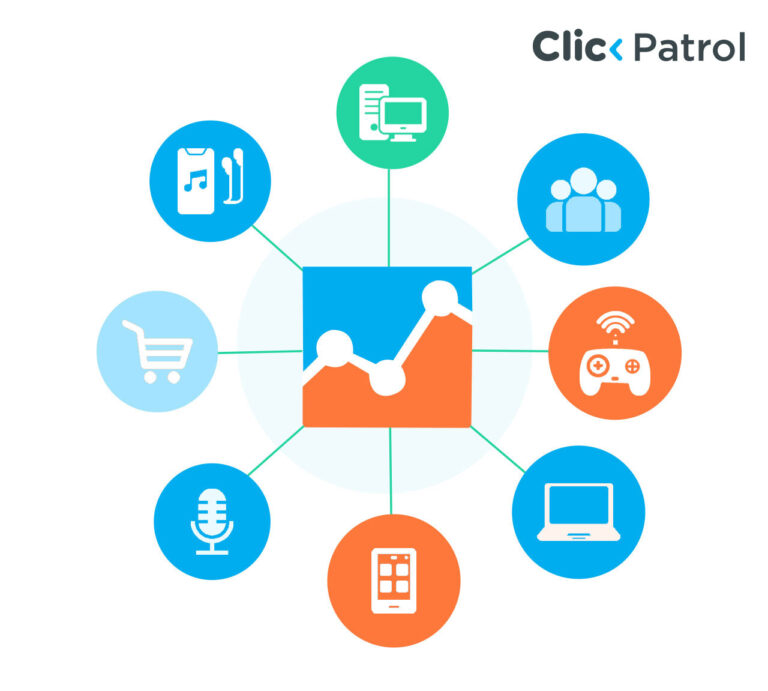
What is Brand Bidding and Why it Matters in Digital Marketing
Abisola Tanzako | Dec 18, 2024

Table of Contents
Brands always look for effective strategies to increase targeted website traffic in the highly competitive field of digital marketing. Brand bidding is one such strategy that has gained popularity. Advertisers use brand bidding, a sponsored search tactic, to target potential customers by placing bids on keywords or phrases that contain their brand name, occasionally along with that of competitors.
Even though it has both advocates and critics, brand bidding is still a common tactic for raising brand awareness and attracting high-intent traffic. This article will explore the meaning of brand bidding, its uses, benefits, and drawbacks, and how businesses may successfully incorporate it into a larger digital marketing plan.
Understanding brand bidding.
Brand bidding is bidding on branded search terms in search engines or paid advertising platforms like Google Ads and Bing Ads. These branded terms include the brand name or variations, such as product names or certain terms that are trademarked and linked to the brand.
For instance, a business like Apple might bid on keywords like “Apple iPhone” or “MacBook Pro” so that users will see Apple’s advertisements at the top of the search results page. To draw in potential clients searching for comparable goods, competitors may also place bids using these phrases (for example, Samsung bidding on “Apple iPhone”).
There are two primary categories of brand bidding:
- Self-brand bidding: When a business places a bid on its brand name or terms unique to a product to keep control over its search engine rankings.
- Competitor brand bidding: When a business bids on the terms of a competitor’s brand, for example, a smaller brand bidding on a more well-known competitor’s name to increase visibility.
Although both forms of brand bidding are frequently employed to raise brand awareness, drive traffic, and enhance sales, they have different competitive and ethical implications.
Why do businesses engage in brand bidding?
Depending on the business’s objectives and the competitive environment, brand bidding can be driven by several strategic reasons. The following are some main reasons why businesses fund this strategy.
- Increased control over brand search results: By placing bids on branded phrases, a business can increase the possibility that its advertisements will appear in the top search results, where users are more likely to view them. This control helps brands preserve their messaging and enhance the consumer experience by tailoring paid advertisements with landing page links, promotional offers, and other information.
- Competitive defense: Self-brand bidding is a defensive tactic. A business may lose clients if it does not bid on its brand terms, allowing competitors to put their advertisements there. Brands may lose sales or brand loyalty if their bidding reduces the visibility of competitor advertisements on their terms.
- Capturing high-intent traffic: Unlike average keyword searches, branded phrase searches frequently reveal higher intent. People who search for a particular brand or product are typically more likely to buy or learn more about it. Brand bidding increases the likelihood of conversion by attracting these highly motivated users and guiding them to the brand’s website.
- Improving quality scores and click-through rates (CTR): People are more likely to click on a relevant ad while searching for a brand, and bidding on branded terms usually results in better CTRs. High CTRs benefit an ad’s Quality Score in Google advertising, which can lower CPCs and enhance ad placements, improving the brand’s overall effectiveness.
- Strengthening brand awareness: Brand bidding raises brand recognition, particularly for up-and-coming companies trying to acquire more established firms. Bidding on competitor keywords enables up-and-coming firms to appear alongside well-known ones, attracting clients who might not otherwise be aware of their products.
Advantages of brand bidding.
Businesses in competitive marketplaces can benefit from brand bidding in several ways. Here is a summary of the benefits of this strategy:
- Improved customer acquisition: Brands may connect with consumers who are actively interested in their products by focusing on branded search phrases. Brand bidding helps turn search traffic into devoted consumers by ensuring that these interested users are directed to the brand’s products.
- Cost-effective compared to non-branded keywords: Branded keywords are typically less expensive than generic, non-branded keywords since they face less competition. Brand bidding is a cost-effective strategy to increase traffic and conversions because CPCs for brand-related phrases are typically lower than those for wide, high-volume keywords.
- Protection from competitor ads: Brand competitors may divert traffic when they bid on a business’s terms. A business can safeguard its traffic and lower the possibility of brand confusion by bidding on its branded terms, keeping competitors from controlling this search space.
- Accuracy in controlling advertising messages: Brands may manage the messaging consumers see by using brand bidding. By arranging ad copy, site links, and extensions, a brand can provide a customized experience, such as exclusive deals or fast links to particular product categories. This improves the customer experience and increases conversions.
Disadvantages and potential downsides.
While brand bidding is effective in many respects, it has potential drawbacks.
- Costs for Self-Brand Bidding: Although branded terms are often more affordable than non-branded ones, the costs can add up, especially for brands that already rank highly in organic results for their terms. For instance, if a user searches for “Nike,” the brand may already have top organic listings. Bidding on the term could mean Nike pays for clicks it might have received organically.
- Risk of competitor escalation: Competitor brand bidding can lead to bidding wars where companies repeatedly increase bids to outdo each other. This can drive up costs for all parties involved, reducing the profitability of brand bidding as a long-term strategy.
- Legal and ethical issues: Some see bidding for competitor brands as a morally dubious practice. Although the results have varied by jurisdiction, there have been instances where businesses have sued rivals bidding on their brand keywords. Some businesses avoid brand bidding on rivals to uphold moral standards and goodwill.
- Potential brand confusion: Brand bidding, mainly when competitors are involved, can cause user confusion if handled appropriately. Similar branding or language in advertisements may deceive consumers and lead to unfavorable opinions of the competition and the brand.
Best practices for effective brand bidding.
Businesses can use best practices to ensure brand bidding aligns with their marketing objectives and does not waste money.
- Combine SEO and brand bidding: Combine SEO and brand bidding to dominate search results pages and boost paid and organic placement visibility.
- Regularly check and modify bids: Examine bidding information to maximize efficiency. Brands can gradually modify their CPC bids to optimize ad placement without exceeding the budget on branded terms.
- Use negative keywords: By excluding low-intent queries, negative keywords help improve ad quality by ensuring that ads only appear for relevant searches.
- Track ROI on brand bidding: Use analytics tools to track conversions, CPC, and quality scores to gauge the effectiveness of brand bidding campaigns and modify strategies appropriately.
- Consider legal boundaries and ethics: Brands should consider ethical implications and the legal environment before bidding on a competitor’s terms. Consulting with legal teams can help maintain an ethical reputation and prevent potential lawsuits.
The role of brand bidding in a holistic digital strategy.
Brand bidding is a sophisticated tactic with competitive positioning, customer acquisition, and visibility advantages. Businesses must consider the expenses, moral implications, and competitive threats, even if they can be helpful in a brand’s digital marketing toolbox. With careful consideration, brand bidding can enhance other digital tactics, such as content marketing, social media outreach, and organic SEO, resulting in a strong and unified online presence.
Like any marketing strategy, successful brand bidding depends on balancing immediate financial gain and long-term brand reputation. Businesses should prioritize brand bidding strategies that improve customer experience and brand loyalty while considering the importance of customer trust. In a market that is becoming increasingly competitive, brand bidding may be a potent tool for expansion and consumer interaction when it aligns with a company’s goals.
FAQs.
Q. 1 Should small businesses invest in brand bidding?
If small firms are in a highly competitive industry or face competition for their brand terms. Although brand bidding may incur extra expenses, it can safeguard search traffic, improve exposure, and assist small businesses in increasing their brand recognition.
Q. 2 What is the difference between brand bidding and regular keyword bidding?
Conventional keyword bidding targets more general terms that are not brand specific, such as “smartphone” or “running shoes,” brand bidding concentrates on keywords that are specific to a brand or product, such as “Apple iPhone” or “Nike running shoes.” And because brand bidding targets consumers who are already interested in the brand, it typically has a better conversion rate.
Q. 3 How can I measure the success of a brand bidding campaign?
Use metrics like click-through rate (CTR), cost per click (CPC), conversion rate, and return on ad spend (ROAS) to gauge the effectiveness of a brand bidding campaign. Monitor shifts in organic click-through rates, customer acquisition costs, and brand visibility to determine the campaign’s impact.





